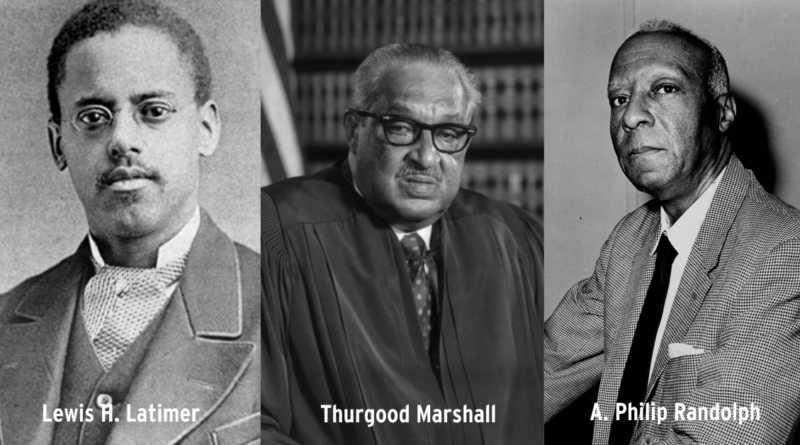NYCHA Developments Named after Black Americans
To commemorate Black History Month, The NYCHA Journal is highlighting the Authority’s developments named after prominent Black Americans. Residents of these developments have permanent reminders of these trailblazers who made considerable contributions to American life throughout our nation’s history.
“Those who have no record of what their forebears have accomplished lose the inspiration which comes from the teaching of biography and history.” – Dr. Carter G. Woodson
LEWIS H. LATIMER (1848-1928) – Born to runaway slaves in Chelsea, Massachusetts, Latimer invented and patented an incandescent light bulb with a carbon filament in 1881. He was a skillful, self-taught mechanical draftsman. He served as an engineer for the Edison Company, where he supervised the installation of the electric light system. He also made patent drawings of the first telephone for Alexander Graham Bell. Latimer was also an accomplished poet, painter, and musician. Latimer Gardens is in Flushing, Queens.
THURGOOD MARSHALL (1908-1993) – One of the best-known figures in the history of civil rights in America and the first Black Supreme Court Justice. He served in the Supreme Court for 24 years, until June 1991 when he announced his retirement. As legal director of the NAACP in 1954, he won Brown v. Board of Education, the landmark case that demolished the legal basis for segregation. Marshall Plaza is in Washington Heights, Manhattan.
A. PHILIP RANDOLPH (1889-1979) – The principal organizer of the Brotherhood of Sleeping Car Porters, Randolph led efforts to end segregation in the armed forces and in schools. It took some 12 years for Randolph to unionize the Pullman Company, the first such contract between a major national employer and a predominantly Black union. He was the key player in forcing an end to discrimination in the military industry. He participated in many civil rights marches, including the March on Washington of 1963. Randolph Houses is in Morningside Heights, Manhattan.
(To see the previous prominent Black Americans and developments, click here, here, here and here.)

